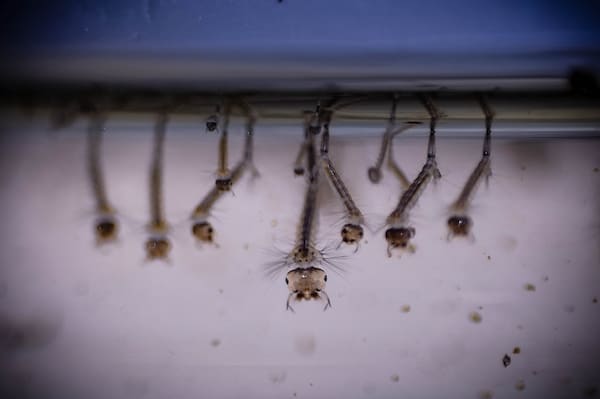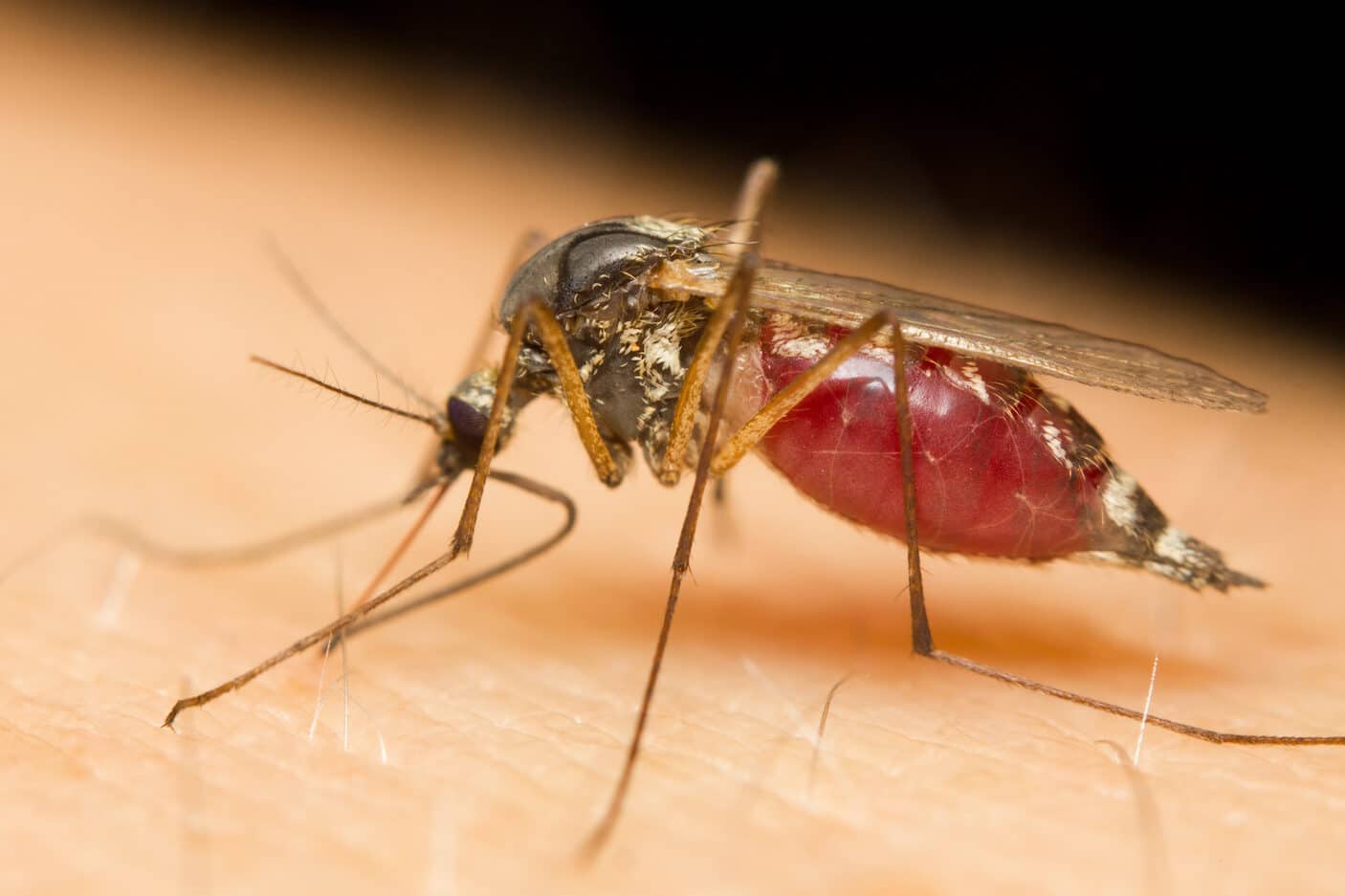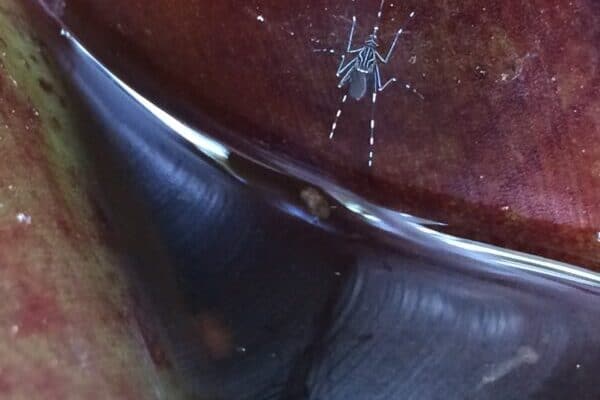Go Pest Hotline: (03) 5448 3407
Reclaim your outdoor areas from mosquitoes...
Mosquito Control - Bendigo and Central Victoria
For professional mosquito control and specialist mosquito treatments call the experts at Go Pest Bendigo. We carry out mosquito treatments across central Victoria.
Mosquitoes are certainly annoying and if you have a mosquito problem, it can make it virtually impossible to entertain outside. Of course, it’s important not to forget that mosquitoes can also transmit a range of debilitating diseases such as Ross River fever and Japanese encephalitis.
Whereas it’s impossible to eliminate 100% of mosquitoes, with some smart mosquito management tips and a professional mosquito treatment, Go Pest will let you reclaim your outdoor areas from mosquitoes.
Reclaim your outdoor areas from mosquitoes - call the experts at Go Pest
What our customers say...
Our Professional Mosquito Treatments
Eliminate or treat mosquito breeding sites
As many mosquito species breed in small stagnant bodies of water, if you can remove the breeding sites, you can significantly reduce the mosquito population around your home. (See below for our tips on eliminating mosquito breeding sites).
If it is not possible or practical to eliminate some bodies of water, in many cases we can apply a larvicide to the water which will kill any larvae present and break the life-cycle, preventing new larvae developing for a month or more.
Mosquito treatment details
The idea with a mosquito treatment is that in addition to killing any mosquitoes present at the time, the aim is to apply a layer of insecticide to the hiding places where mosquitoes rest.
Mosquitoes will typically rest in sheltered areas, under the leaves of plants and under outdoor furniture. As such, we apply our mosquito treatments using sprayers or foggers to all the potential outdoor mosquito resting places.
The idea is to create a mosquito interception barrier around your property. Any mosquitoes flying onto your property are likely to rest in these areas, pick up the insecticide and die. Scientific research has demonstrated these treatments can reduce mosquito numbers by up to 90% and last for up to 3 months.
How safe are the treatments with bees?
Safety is our number 1 priority at Go Pest – humans, pets and the environment. Bees are sensitive to all insecticides so we need to be careful when applying.
The good thing about mosquito treatments is that all the areas where we apply the insecticides aren’t areas that bees are active or rest, so the chances of bees coming into contact with the insecticide are small. That said, we don’t apply if there are flowering plants nearby, just in case.



Mosquito life-cycle
- The female mosquito needs a blood meal to get protein for egg development. Male mosquitoes eat plant nectar.
- Once the female has had blood meal, she will lay her eggs on or near water. The exact location and type of water body will depend on the species of mosquito.
- The eggs hatch within a couple of days. The larvae – the wrigglers – which hatch live in the water and breath through siphons which they stick through the water surface. They go through several moults before they are ready to turn into an adult.
- When the larvae are ready to turn into an adult the form a pupa. It takes a couple of days for the adult to develop, which then emerges and the life-cycle begins again.
- The whole life-cycle can be completed in as little as 2 weeks.
How to prevent a mosquito problem?
The key step homeowners and businesses can take to reduce mosquito numbers is to eliminate mosquito breeding sites. Many species of mosquitoes don’t fly very far and breed in small, stagnant bodies of water. So if you can eliminate the breeding sites, you can reduce the mosquito population around your home or business.
- Plants / plant pots: Empty water from plant pots and bromeliads
- Drains and gutters: Make sure gutters and drains are not blocked and there is no pooling of water
- Rainwater tanks: Lids need to be tight fitting and mesh covers (mesh less than 1mm) need to be over inlets and overflows. Not only does this prevent access for female mosquito to lay their eggs, it prevents any larvae being washing into the rainwater tank from the gutters
- Ponds and water features: Ensure you have fish in the water feature to eat any mosquito larvae. (In some cases a larvicide treatment will be possible)
- Swimming pools: Remove any leaves and debris from the pool and keep chlorine levels up
- Site Drainage: Take action if there are persistent problems with long lasting puddles.
Note: The mosquito life-cycle can be completed in as little as two weeks, so even in periods of persistent rain, as long as you empty plants pots, etc every 10 days or so, you will break the mosquito breeding cycle.
Mosquito borne diseases
Mosquitoes carry an number of viruses that can cause illness in humans. In Victoria, the key mosquito borne diseases are Ross River fever and Barmah Forest virus. These diseases can be debilitating causing flu like symptoms and joint pain (often long lasting), but are not fatal.
However, there are occasional outbreaks of more serious diseases, such as Murray Valley encephalitis and Japaneses encephalitis. For many who contract these diseases there are no symptoms or mild flu like symptoms, but some will go on to develop brain infections (encephalitis) – causing headaches, convulsions, confusion and potentially death. Only 1 in 250 patient develop these more severe symptoms in the case of Japanese encephalitis and 1 in 1000 in the case of Murray Valley encephalitis.
Protection from mosquito bites is always a good idea. Covering up with long sleeved tops and long trousers or using personal mosquito repellent provides the best protection when out and about. Of course a professional mosquito treatment around your home will significantly reduce mosquito numbers and the chances of getting bitten too!
Ph: (03) 5448 3407
Address: 1/18 Matchett Drive, East Bendigo, VIC 3550
Servicing Bendigo and Country Victoria
Phone: (03) 5448 3407
© Go Pest Bendigo 2020
